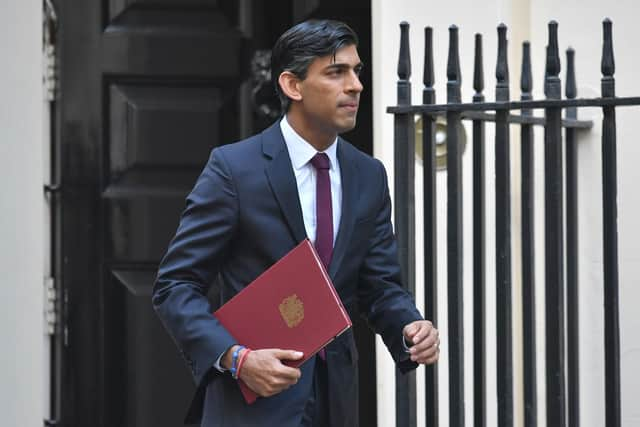Rishi Sunak's Spring Statement: Chancellor in Margaret Thatcher's image ditches his pandemic image of generosity – Ian Swanson
and live on Freeview channel 276
[Let us know what you think and join the conversation at the bottom of this article.]
So there may have been some expectation as he prepared for his Spring Statement last week that this Mr Bountiful would take dramatic and generous action to help people again.
Faced with inflation at a 30-year high, energy prices soaring and families threatened with an unprecedented squeeze on their finances, there were hopes the Chancellor would announce some measures to assist those hardest hit by the cost of living crisis.


Advertisement
Hide AdAdvertisement
Hide AdBut those hopes were dashed when Mr Sunak set out his plans. There was no reversal of the 1.25 per cent rise in National Insurance contributions (NICs) and no extra help on energy bills.
He did raise the threshold at which workers start paying NICs by £3,000 a year, but experts say only one-third of the benefit goes to the lower-income half of the population.
And he cut fuel duty by 5p per litre for 12 months, but it is estimated only seven per cent of the benefit of that will filter down to the bottom fifth of households,
If he really wanted to help people with the cost of living crisis, the very least the Chancellor could have done was increase benefits in line with inflation.
Advertisement
Hide AdAdvertisement
Hide AdInstead, having already had their £20 a week Covid uplift removed, people on Universal Credit will see their payments increased by just 3.1 per cent – well below inflation – when the Institute of Fiscal Studies says their living costs are likely to rise by around ten per cent.
The government’s much-trumpeted Levelling Up agenda seems to have been forgotten.
The Office for Budget Responsibility has projected that inflation will lead to the biggest fall in living standards since records began in the 1950s.
And the Resolution Foundation now estimates an additional 1.3 million people across the UK will be pushed into absolute poverty in 2022/23, including 500,000 children. The think tank's analysis shows typical working-age household incomes could fall by four per cent in real-terms from April, a loss of £1,100, while the incomes of the poorest quarter of households are set to fall by six per cent.
Advertisement
Hide AdAdvertisement
Hide AdThe Chancellor’s “rabbit out of the hat” announcement was his promise of a 1p cut in income tax, though not until 2024. But it has failed to impress many beyond his own backbenches. As recent history tells us, a lot can happen in two years.
Mr Sunak is a self-declared Thatcherite who wants to be remembered as a tax-cutting Chancellor, but it has been calculated that the overall tax burden is now on course to hit its highest level since the late 1940s. And Labour has even labelled him Mr Tax.
The Spring Statement won few plaudits from the media or the public – 75 per cent in Scotland said he had not done enough to help people.
Some commentators have suggested the Chancellor will be forced to come back later in the year to announce new measures with more support for people suffering the most.
But, at the moment, it looks as if he has well and truly discarded his Mr Bountiful guise.
Comment Guidelines
National World encourages reader discussion on our stories. User feedback, insights and back-and-forth exchanges add a rich layer of context to reporting. Please review our Community Guidelines before commenting.
